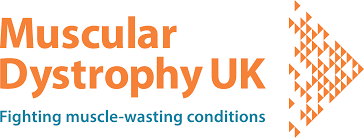
Muscular Dystrophy UK (MDUK) bring together more than 60 rare and progressive muscle-weakening and wasting conditions, affecting around 70,000 people in the UK. They joined Breaking Down Barriers to explore how they could better meet the needs of their diverse community. MDUK already facilitated a successful support group called Awaaz in West Yorkshire for people from South Asian communities and wanted to build on this to develop further groups in West Midlands, Greater Manchester, and Lancashire.
Due to the pandemic, it was no longer appropriate to plan in-person support groups so with the support of BDB, MDUK changed the focus of their project to understand more about the barriers experienced by people from diverse communities when accessing specialist Neuro-muscular clinics. A survey was designed for patients and healthcare professionals. It was challenging to get feedback from patients due to the lack of in-person contact due to the pandemic. However, the survey with professionals received a good response and findings were shared at the MDUK Care Advisors Conference in May 2021.
One of the questions asked in the survey for professional’s was:
Do you feel that all communities are engaging equally well with your service?
Yes – 40%
No – 60%
Professionals were asked to share the reason for their response and below are a few sample comments:
- ‘Sometimes language barriers or religious beliefs affect patients’ decision making and options, so they don’t equally access other parts of the service or referral pathway’
- ‘We struggle to engage Southern Asian families at times and Eastern European families’
- ‘Some more than others. I think there is a lack of understanding amongst all cultures about why attendance at clinic is important for their health’
- ‘Mostly – as long as we can access interpreters if required’
- ‘Language barriers can mean that support is harder to provide, and often support needs to be face-to-face instead of over the phone or email’
- ‘As we have only a very small number of patients from non-white/non-British backgrounds, I cannot comment on how other communities are engaging with the service – is it that they’re not engaging? Is it that there are too few in numbers to engage in the first place?’
- ‘It can be difficult for some groups to engage due to language barriers’
- ‘One patient with very limited English often DNA’s, but family may not understand appointment letter, which is not translated. Younger generations of same family engage better, possibly as their English is much better’
- ‘Some do not want to be informed or involved’
- ‘Due to cultural differences, some families can use our service less.’
- ‘I can only speak from my experience of working within a neuromuscular clinic, which at times has been limited. I haven’t felt as though there has been any resistance in terms of engagement.’
- ‘Some who we end up calling the harder to reach sometimes don’t’
- ‘We have a larger cohort of white British patients, not sure if this is because the prevalence of NM conditions is higher in this cohort and/or other communities/groups are less likely to engage with NHS services and miss opportunity to be referred in to us.’
- ‘Some are more likely to request input, others will accept it but not be as proactive’
- ‘Sometimes due to cultural beliefs engagement is limited’
- ‘Hard to tell, I think some families from the Asian community may approach healthcare in a different way to how things are managed in the UK. Particularly feel that there is a high carer burden in some Asian communities where certain family members are expected to care for other family members rather than having a formal package of care’.
MDUK are now using these survey findings to inform future service developments and to find ways to ensure clinics are as inclusive and as accessible as possible. Full findings from this survey will be published shortly.
It is important to also gather the views and experiences of families and hopefully now that Covid-19 restrictions are being lifted, with some clinics returning to face to face, there will be an opportunity to complete the patient surveys.
MDUK now has an Ambassador who is specifically focussed on connecting, representing and expanding the number of people of colour who are affected by muscle-wasting conditions.
MDUK are also collaborating with muscle-wasting charities across the world on Equality, Diversity and Inclusion principles, helping to break down barriers for people living with neuromuscular conditions. The Chief Executive of MDUK has signed a Statement of Intent to work together with leaders from Muscular Dystrophy Australia, Muscular Dystrophy Canada, and Muscular Dystrophy Foundation of South Africa to address EDI on an international scale (5.).
‘The Community Engagement Manager for Breaking Down Barriers, who is based in Greater Manchester has an excellent grasp of the opportunities and challenges involved in working with families from British Asian backgrounds through her work for the Breaking Down Barriers network.’ MDUK
You can find out more about MDUK via their website:

